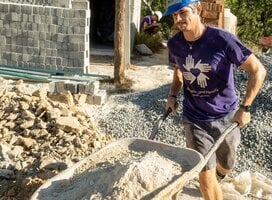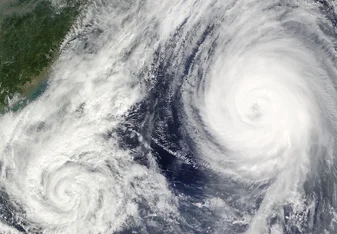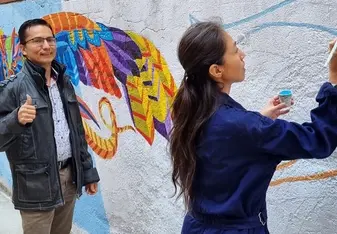Volunteer in Mexico
Volunteering in Mexico, one of the most diverse countries in the world – biologically, ethnically, linguistically, and culturally – means you'll never be bored. Mexico is home to one of the new seven wonders of the world (Chichén Itza), dozens of biosphere reserves (monarch butterflies, coral reefs, volcanoes, and more), spectacular beaches, world-renowned cuisine, and the second-largest city in the world (Mexico City). There really is something for everyone!
Maintaining this diversity while growing economically has been one of Mexico's foremost challenges. Popular volunteer projects in Mexico include environmental initiatives and work with poor communities. Unfortunately, the country also continues to struggle with providing basic services, particularly in rural areas, which means that health and education volunteers in Mexico are regularly needed. Many volunteer opportunities are only available to volunteers with some Spanish.
Environmental
Mexico is one of a few "mega-diverse" countries in which most of the world's biological diversity is found. A number of different projects work to maintain this diversity, and volunteers might conduct flora and fauna censuses or provide community education about conservation. Experience in biology and botany is a plus.
Work with Children and Youth
Social services in Mexico are chronically underfunded, particularly those that work with orphans, children in poor communities, and children of single mothers. Volunteers in this realm nurture these children, and their long-term work is truly an investment in Mexico's future. Make sure to avoid scams and work with responsible organizations that do more harm than good.
Education
Schools in Mexico can't keep up with growing numbers of students. Poor students rarely have access to English and computer classes, which provide economic mobility, and volunteers can help create these opportunities for underserved youth.
Health
Volunteers, particularly those with a medical background, can work in clinics throughout Mexico or help with outreach projects. These positions typically require the highest level of Spanish.
Gender Equality
Violence against women in Mexico puts them at an extreme economic and social disadvantage. Women make significantly less money than men and many times they need to travel for work. Volunteers can help change the long history of discrimination and sexist attitudes.
Mexico City is a popular place to volunteer in Mexico. Not only can you explore Aztec ruins and visit the Frida Kahlo Museum in your free time, but you can volunteer in education, health, and youth to make a difference in the capital city.
Known for its delicious food, Oaxaca is a great option to volunteer in Mexico. Enjoy the colorful markets in the evenings, and volunteer during the day. You can find opportunities in a host of different industries such as art, law, healthcare, and more.
The Yucatan is a beautiful and diverse area of Mexico. Its well-known vacation spots are Cancun and Tulum where people come to learn about the ancient Mayan civilization, explore the jungles and cenotes, and relax on the beach. While you explore during the weekends, you can volunteer in education during the week.
Visas
Citizens of the U.S., E.U., and many other countries do not require visas to enter Mexico as tourists, and can stay for up to 180 days. However, be aware that some volunteer programs in Mexico may require a work visa even if you are not being paid.


















